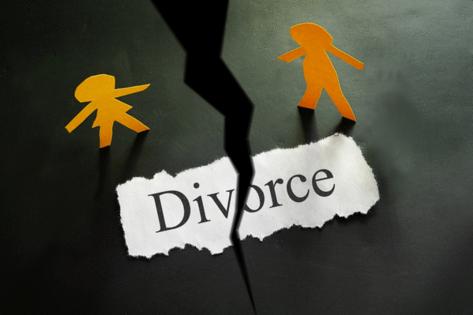Heidi Stevens: Is rolling back no-fault divorce really the way to preserve and protect marriage? A marital historian weighs in
Published in Lifestyles
When the U.S. Supreme Court reversed Roe v. Wade in June 2022, overturning the constitutional right to an abortion, analysts predicted a wave of socially conservative legislation, particularly laws that chip away at women’s rights to individual freedoms.
No-fault divorce is frequently cited as the next logical territory to roll back.
“The drive to increase restrictions on divorce is part of … an effort to re-entrench conservative family values, incentivize heterosexual marriage and childbearing, and disempower women,” writes Anna North in a recent Vox piece, “The Christian right is coming for divorce next.”
No-fault divorce has been on the books for more than 50 years—first signed into law in California by then-Gov. Ronald Reagan in 1969. By 2010, all 50 states had no-fault divorce options, which means couples across the U.S. can obtain a divorce without one party having to allege or prove that the other party is to blame. The rise of no-fault divorce is linked to a significant drop in rates of intimate partner violence, spousal murder and female suicide.
But opponents view the option as anti-family, making the dissolution of a sacred tradition all too expedient and tearing apart the moral fabric of society along the way.
“The socially conservative, and often religious, right-wing opponents of such divorce laws are arguing that the practice deprives people – mostly men – of due process and hurts families, and by extension, society,” Eric Berger writes in a new piece in The Guardian. “Republican lawmakers in Louisiana, Oklahoma, Nebraska and Texas have discussed eliminating or increasing restrictions on no-fault marriage laws.”
In his new book, “The Perilous Fight: Overcoming Our Culture’s War on the American Family,” former Trump Cabinet member and potential Trump running mate Ben Carson says this:
“The reason this matters is that no-fault divorce legally allows marriages to end much more quickly than in previous decades,” he continues. “When there are relatively few legal or financial consequences connected with divorce, it’s natural for people to gravitate toward that option when their marriage hits a rough patch.”
But is making it more financially, emotionally and logistically onerous to exit an institution the way to preserve and protect the health and well-being of that institution? Or, more importantly, the health and well-being of the people who inhabit it?
The decision—and the desire—to marry is such a wildly individual, personal, messy, beautiful, hopeful process. It’s also pretty universal. We aspire to marriage and revere marriage and show up for marriage and celebrate marriage across party lines, across gender lines, across geographic lines, across demographic lines, across faiths. Those of us on the side of equality fight for more people, not fewer, to have access to it.
...continued
©2024 Tribune News Service. Distributed by Tribune Content Agency, LLC.







Comments